
First Visit
“Along with the American Academy of Pediatric Dentistry, we recommend that you bring your child to their first pediatric dental visit by their first birthday.”
No matter your child’s age at their first appointment at our practice, we want your child to become familiar with Dr. Liz and staff and feel comfortable at all times. A positive first visit will build trust and put your child at ease during future dental visits. Let your child know that the doctors and staff will explain everything in detail and will answer any questions he/she has.
We will discuss your child’s dental and medical history, complete a comprehensive examination, cleaning, and customized dental x-rays based on your child’s age and development. We will review any findings with you and recommended treatment, if necessary. We will simplify home care and give parents the keys to making things easier!
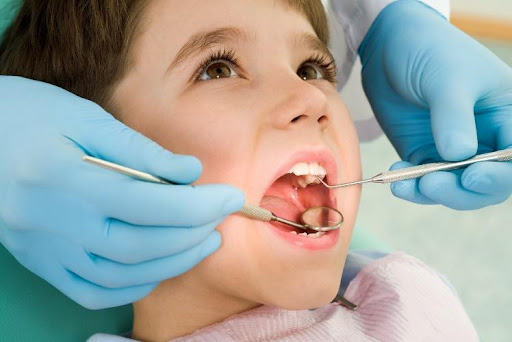
Prevention
For most of our patients, we recommend a dental check-up including an exam, cleaning and fluoride varnish treatment twice per year. We will always customize dental x-rays based on your child’s age and development and dental needs at each appointment. Our goal is to focus more on helping parents prevent issues. We will keep a very close eye on things, and only treat what is necessary.
request an appointment
Dental X-Rays
Not every child needs x-rays every six months. The AAPD recommends evaluating a child and prescribing x-rays, as needed, and that’s exactly what we do! Our techniques to capture x-rays are specialized for kids to make them much faster, easier, and more comfortable than ever before.
We only use digital x-ray technology which allows us to be as safe and efficient as possible, minimizing radiation exposure to our growing patients.
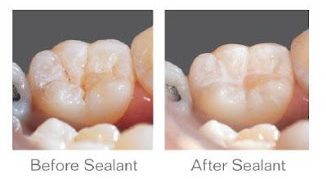
Dental Sealants
The grooves and depressions in our back teeth can be extremely difficult (if not impossible) to clean free of bacteria and food. As the bacteria reacts with the food, acids form and break down the tooth enamel, causing cavities. Recent studies indicate that 88% of total cavities in American school children are caused this way!
Dental sealants are one of the best ways to protect the chewing surfaces of our back teeth and prevent cavities. Sealant material can be applied to baby molars as well as permanent premolars and molars and any other areas prone to cavities. Sealants can last for several years but need to be checked during regular appointments and maintained for maximum effectiveness.
request an appointment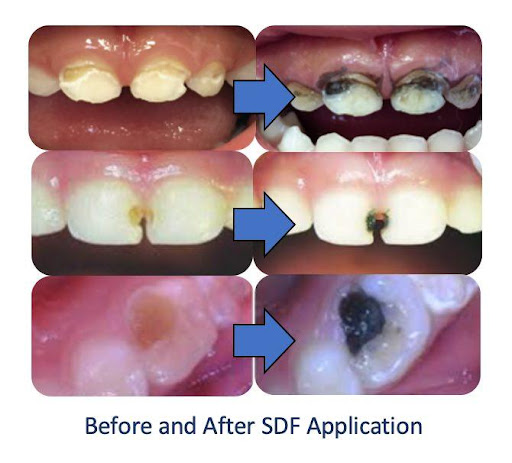
Silver Diamine Fluoride
Occasionally toddlers age 2-3 yrs old can have cavities on their baby teeth. For these children, Silver Diamine Fluoride (SDF) is an antimicrobial liquid that is able to treat cavities in a non-invasive, quick, affordable, and painless manner. This can be an option to delay or slow the progression of dental decay until the child is older, and more definitive treatment such as fillings and crowns are possible.
Pros: SDF is quick, painless, non-invasive, affordable, and can delay progression of tooth decay and help prevent recurrent decay.
Cons: SDF permanently stains cavities and white spot lesions black. SDF does not restore tooth form or function, so holes or cavities may still require traditional restorations like fillings or crowns at a later date. SDF requires repeat application for maximum efficacy. SDF cannot be used for deep decay as it can be irritating to the nerve of the tooth.
request an appointment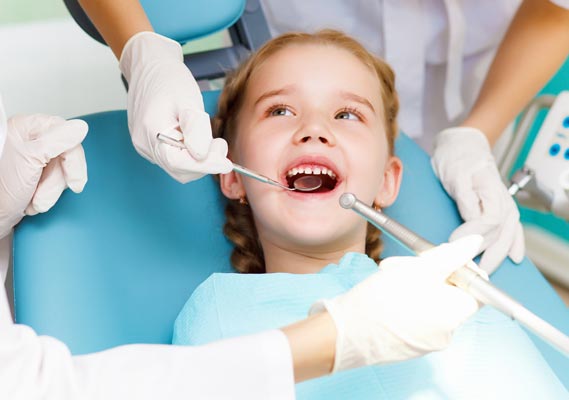
Restorative Dentistry
Fillings– We are happy to provide tooth-colored fillings, placed with care. These mimic the appearance of natural teeth. White fillings are usually used on the front teeth where a natural appearance is important, as well as on the back teeth depending on the location and extent of the tooth decay. Sometimes, if a cavity is too large for a filling, the dentist may recommend a crown instead.
Crowns– Crowns are a full-coverage dental restoration used to strengthen and protect the tooth by covering up all surfaces of that tooth. Crowns are “cemented” onto an existing tooth and fully cover the portion of your tooth above the gum line. In effect, the crown becomes your tooth’s new outer surface.
Pulpotomy (Baby Root Canal)– In short, a baby root canal can be needed when a cavity becomes large enough that it is beginning to affect the nerve of the baby tooth. Without treatment these cavities can suddenly cause pain and infection and even result in tooth loss. During this procedure, a portion of the baby tooth nerve will be cleaned, and a crown placed over the tooth. A baby root canal helps to prevent tooth loss, as it restores the entire tooth, making it strong and rehabilitated!
Extractions– No parent wants to hear that their child needs a tooth removed, but gentle dental extractions can help patients avoid further, more serious dental issues down the road. We can help to remove problematic teeth efficiently and as comfortably as possible to restore your child’s smile to a happy and healthy state. If you would like to learn more about kids’ tooth extractions or schedule an appointment with our team, please contact our front office.
request an appointment
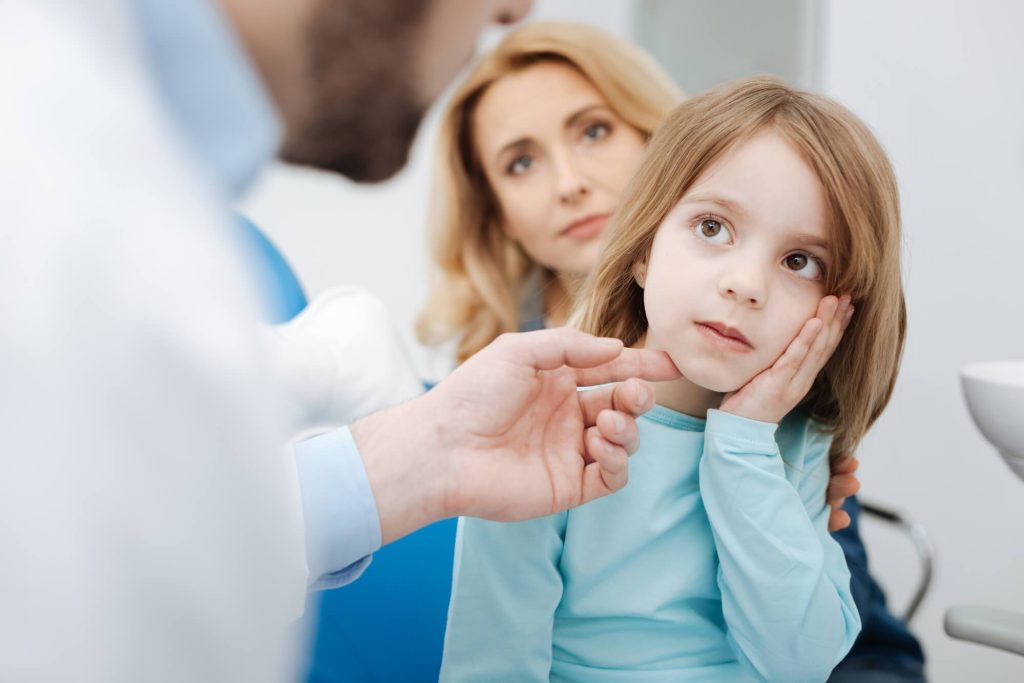
Emergency Dental Care
When an accident happens the most important thing to remember is to act calmly but efficiently, and that’s exactly what we do. Depending on the situation and severity of the dental emergency, your child may be in pain and upset. Keep in mind, however, that if you remain calm, your child is more likely to remain calm as well. If your child is suffering from a serious medical emergency, contact 911. Otherwise, contact our office 979-968-8889 during regular business hours. If an accident happens after our normal business hours, an emergency number can be found on our recording.
request an appointment
Space Maintainers
When a child loses a tooth early because of decay or an accident, it is important to maintain the space for the permanent teeth to grow in properly. There are several different types of space maintainers that are used in various situations. We can help recommend which appliance is right to help guide proper growth and prevent future crowding!
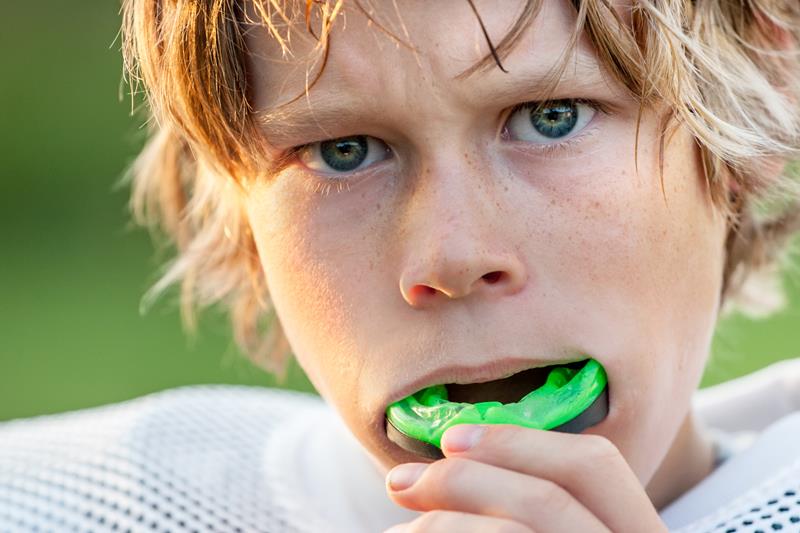
Mouth Guards
Protecting your child’s smile while playing sports is essential. Sports-related injuries to the mouth and jaw are some of the most common injuries received by athletes.
Mouthguards help protect teeth and gums from injury. If your child participates in basketball, boxing, hockey, football, gymnastics, lacrosse, martial arts, racquetball, rugby, track and field, skateboarding, skiing and snowboarding, skydiving, soccer, surfing, volleyball, water polo, weightlifting or wrestling, it is recommended by the American Dental Association that a mouthguard is worn.
We offer custom mouthguards that are tear resistant, comfortable, and well fitted to your child’s mouth.
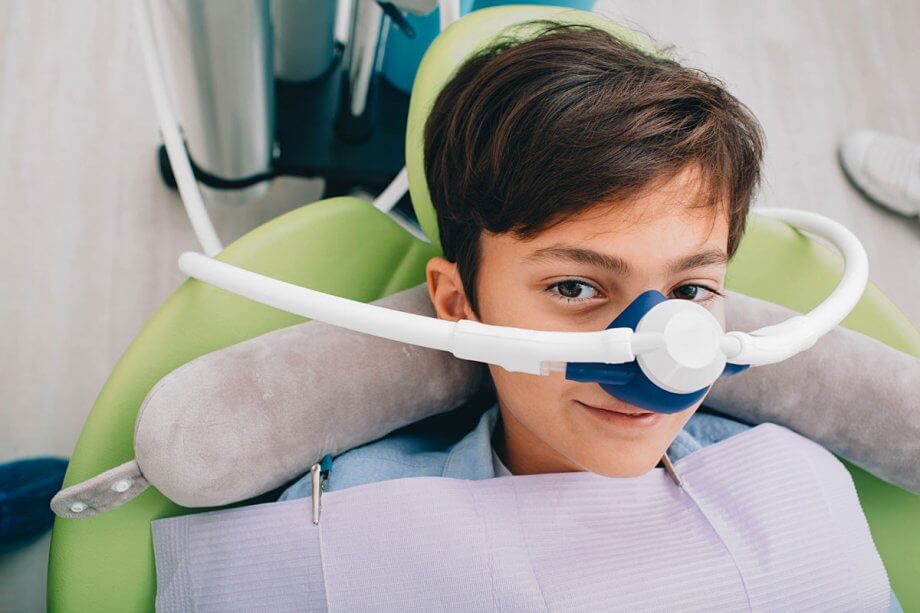
Sedation Dentistry
We are committed to safe and compassionate care for all children, and before determining whether laughing gas or conscious sedation may benefit your child, we would like to meet him/her for an initial visit. At this visit, we will complete a dental exam, any necessary x-rays and discuss all available options for his/her care, including the risks and benefits of each option.
- Nitrous oxide, or laughing gas, is the most frequently used method for easing mild anxiety in children. Administered through a small mask that fits over your child’s nose, it is an effective way to calm dental anxiety and preserve a positive experience. Your child will be asked to breathe through his or her nose and will become calm, although he or she will still be awake and talking with the dentist and team. At the end of your child’s appointment, he or she will resume breathing regular oxygen, and all the effects of nitrous oxide will disappear. As your child gets older and becomes more comfortable during dental visits, nitrous oxide may not be necessary.
- In-office conscious sedation can be a great option for children including those who have moderate anxiety and have many dental needs that require lengthier procedures. It is typically a liquid medication that is administered in office before your child’s treatment. In addition, your child will also receive laughing gas. While they will remain conscious, the medication will cause them to feel calm and a bit drowsy during their treatment. It can take some time for the effects of oral conscious sedation to wear off, so your child will need to be under adult supervision for the remainder of the day and cannot return to school until the next day.
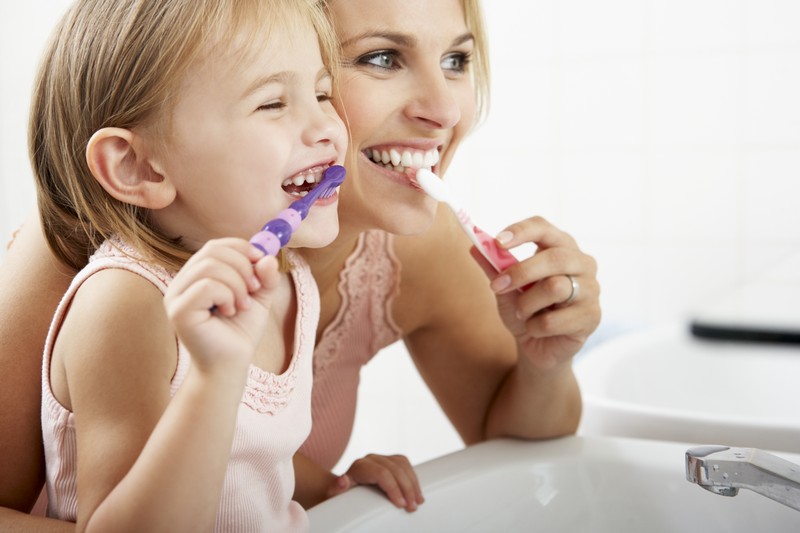
Post Treatment Care
We provide all of our patients and parents with specific instructions based on which procedures were completed. Please call our office so we can help you and answer any questions that you may have!

